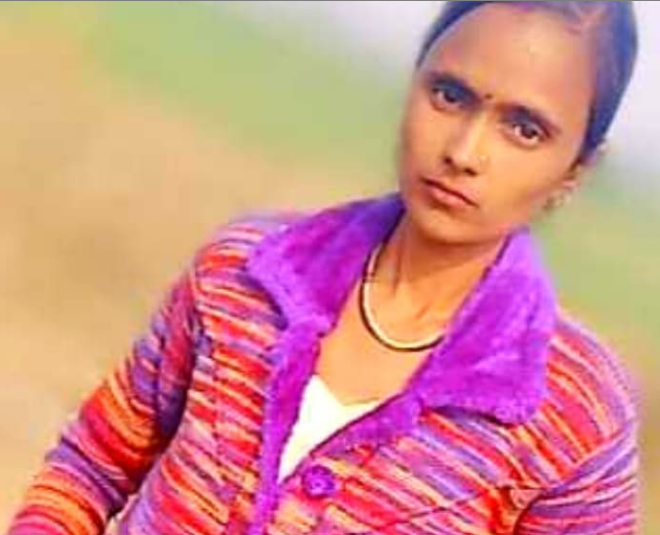#KnowOurLeader | Pramila | Bihar

“I was never allowed to touch a phone. Only brothers in my family would use it. My mother would say “you are a girl, why do you need a cell phone”.
I was born in a family of two brothers and two sisters in Buxar, Bihar. I am the youngest of them. My mother is a home maker and my father used to sell vegetables in my village. Pressure from my family to get married started building up when I turned 18. I was so scared of my parents that I could not tell them that I did not want to get married. One day I gathered a lot of strength and told my mother that I am not ready to get married. She replied “everyone gets married, it is no big deal.”
In 2018, I worked at The YP Foundation in Patna, where I learnt about #SRHR. I would learn from them and I would teach those things to 15 young girls in my community. I worked there for 18 months before getting married. I was the first girl in my village who would go to Patna to learn new things. The community members would comment about it. In fact, they still do!
I was 21 years old when I got married on 22nd February 2019 and moved to Chhattisgarh. I lived with my in-laws for a month. My husband used to live mostly in Rajasthan and some days he would be at home. It turned out my husband was an alcohol addict and would beat me every day after coming home drunk.
One day, police came to my house. My mother-in-law locked me in the room and did not let me talk to the police officers. I was very scared because I was far away from my home back in Bihar. I came back home with my brother after a lot of struggles. I wanted to get divorced but my parents did not support me. They do not talk about taking a divorce at all as if it is an “unsaid term”. I think everyone is afraid of the legal process that will be involved in the proceedings.
After I came back from Chhattisgarh, I got to know about FAT. I would go to Patna Tech Center (program space of FAT) to learn camera, videography and computer. We screened “Khulte Pankh”, a film produced by girl leaders on early and forced marriage in various villages of Bihar. On the first day at FAT, I learnt about patriarchy and gender inequality. When I learnt about those things, I realised I have been facing this all my life! We all face violence, but we don’t realise it until we learn about it.
At FAT, it was the first time I held a camera. I learnt how to operate one. I learnt about operating a computer and how to use a smart phone. I did not even know how to dial a phone call back then. I was never allowed to touch a phone. Only brothers in my family would use it. My mother would say “you are a girl, why do you need a cell phone”. The phone through which I am connected right now, was provided by FAT. Otherwise, my family members would have never let me buy a phone. The community I belong to, girls don’t do anything except for domestic work. Sometimes I get afraid that what if my parents also get influenced one day from them.
I also went to Himachal Pradesh to be trained as a Maths teacher in an organisation called Sanjhe Sapne through FAT for 4 months. Soon after coming back, I joined Level 3 collectivisation at FAT. Because I faced the consequences of a forced marriage, I want to create that space for other girls where they can realise injustice when it happens to them. I could not do justice for me but I want it for other girls.
Now when I look back, I see myself moving forward!
I want other parents to understand that never force your daughter to get married. Please wait until she is ready on her own. Thinking you are the “father and mother” and you can decide the future for her is very wrong.
Narrated by Pramila Kumari, Young Women Leader from Level-3 Collectivisation at FAT.
Written by Almas Naseem
Edited by Priyanka Sarkar
- Log in to post comments


